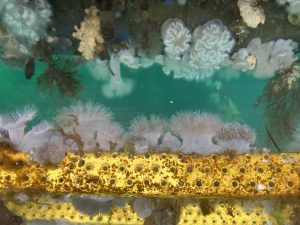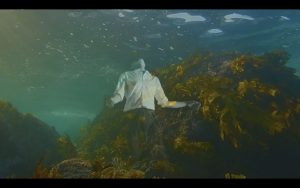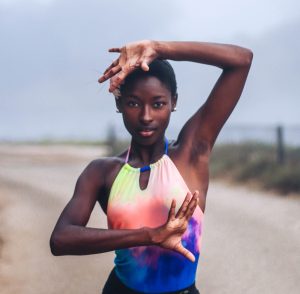July 6 – July 27, 2025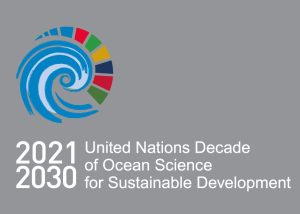
Marine Sciences, Ocean Arts: Interdisciplinary, Intertidal, Interdependent
Taught by Marjorie Wonham, Xochitl Clare, and Genevieve Gaiser Tremblay
How do we understand and respond to the “ocean emergency”? This training workshop invites practitioners, educators, graduate students, and advanced undergraduate students from science, arts, and interdisciplinary backgrounds to collaborate in investigating and creating scientifically-grounded work in oceanic environmental arts, or marine STEAM. Although sciences and arts use different modes of inquiry, they share core actions of observation, wonder, cognition, analysis, imagination, and expression to create new knowledge, new relations, and new understanding.
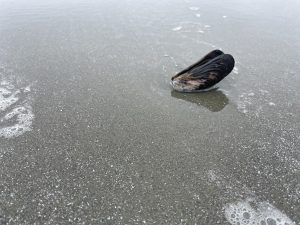
Drawing on ecopoetics, environmental humanities, bioart, and STEAM frameworks, this workshop will explore three core questions:
- How do we make sense of the Anthropocene’s ocean emergency?
- How can both the sciences and the arts help us understand, react, and respond to the changing oceanic biosphere?
- How do interdisciplinary and transdisciplinary collaborations help us learn from each other and expand the limits of self and knowledge?
In the first half of the workshop, we will develop lab and field skills in scientific and arts-based inquiry. In the second half, we will develop and share original works that integrate the two. We encourage participants to bring a work in progress to move forward, or to develop new lines of individual or collaborative inquiry during the workshop. You will emerge with a deeper scientific and creative practice, greater agility and competence to adjudicate among diverse and complementary knowledge claims, and a portfolio of scientifically sound analytical and creative work that celebrates the living ocean.
Featured guest speakers include:
| Drew Harvell | Melody Jue | Sierra Nelson | Rena Priest |
| Josie Iselin | Samantha-Lynn Martinez | Amelia Nommensen | Adam Summers |
| Lekelia Jenkins | Astrida Neimanis | Fernanda Oyarzun |
 Dr. Marjorie Wonham is a marine biologist whose research and teaching span marine ecology, invertebrate zoology, and the productive tension between biology and poetry. She regularly teaches hands-on, experiential, place-based undergraduate and graduate courses and public workshops in California, Washington, and British Columbia, and is currently based at Friday Harbor Laboratories, in Coast Salish territories.
Dr. Marjorie Wonham is a marine biologist whose research and teaching span marine ecology, invertebrate zoology, and the productive tension between biology and poetry. She regularly teaches hands-on, experiential, place-based undergraduate and graduate courses and public workshops in California, Washington, and British Columbia, and is currently based at Friday Harbor Laboratories, in Coast Salish territories.
Dr. Xochitl Clare is an Afro-Latina marine biologist, interdisciplinary artist, and Washington Research Foundation Postdoctoral Fellow at the University of Washington’s School of Aquatic and Fishery Sciences. Her research focuses on how ocean warming and pollution impact fisheries in the Pacific Northwest, California, and the Caribbean.
Blending science and performance, Dr. Clare creates public engagement experiences through theater, poetry, and storytelling. She is the creator of the Ocean Improv Poetry Table, a live typewriter-based poetry experience hosted at venues like the Burke Museum and Georgetown Steam Plant, where participants collaboratively explore their emotional connections to the ocean and climate change.
Her latest work includes contributing a chapter to Monster Utopia (2025), a collection of speculative eco-art writing, and launching a new Environmental Art-Media working group at UW’s College of the Environment (Fall 2025).
Website: www.dancingbiologist.com
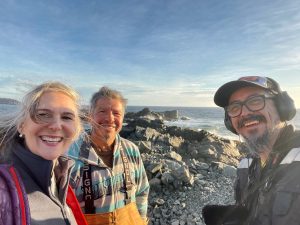 Genevieve Gaiser Tremblay (far left) is a new media artist, creative technologist, and researcher. She co-founded ASKXXI, a U.S.–Chile initiative fostering collaboration across ecological science, emerging technologies, and the arts. As Adjunct Researcher at Instituto Milenio SECOS, she integrates art, data, storytelling, and immersive technologies (AR/VR) into collaborative projects (i.e. Tiempo de Muralismo) with coastal communities in Chile to support blue justice and inclusive ocean governance. As a founding member of the Climate Knowledge Collective, she collaborates with Stony Brook University researchers to amplify the voices of women and Indigenous climate leaders through oral histories and story maps that preserve knowledge and support environmental resilience.
Genevieve Gaiser Tremblay (far left) is a new media artist, creative technologist, and researcher. She co-founded ASKXXI, a U.S.–Chile initiative fostering collaboration across ecological science, emerging technologies, and the arts. As Adjunct Researcher at Instituto Milenio SECOS, she integrates art, data, storytelling, and immersive technologies (AR/VR) into collaborative projects (i.e. Tiempo de Muralismo) with coastal communities in Chile to support blue justice and inclusive ocean governance. As a founding member of the Climate Knowledge Collective, she collaborates with Stony Brook University researchers to amplify the voices of women and Indigenous climate leaders through oral histories and story maps that preserve knowledge and support environmental resilience.
She recently co-authored the paper “Positioning blue justice at local scales: insights for transdisciplinarity through art-science integration,” published in Ecology & Society (2025) with colleagues at Instituto Milenio SECOS. https://ecologyandsociety.org/vol30/iss1/art35/
Application materials must include:
- Personal statement indicating your (1) interest in the chosen training workshop, (2) how the workshop will influence your career path, and (3) what aspects of the workshop you are most interested in
- CV
- Name and contact information for one reference
- Transcript if applicant is an undergraduate or not yet in graduate school
Need-based FHL scholarships are available to offset training workshop costs.
For general information and costs, visit the FHL Training Workshops webpage.
LinkedIn: https://shorturl.at/1uEud
Facebook: https://www.facebook.com/share/p/15XpNgaZ8z/
Send application materials to mwonham@uw.edu and xochic@uw.edu by February 1 for priority review.
Photo credits top to bottom: Marjorie Wonham; Astrida Neimanis; “So Tired, The Sea” (2019), Astrida Neimanis in collaboration with Siouxzi Connor and Dominique Baron-Bonarjee; Naimh Owen-McLaughlin
